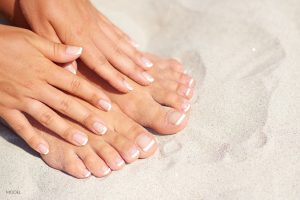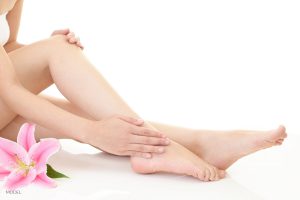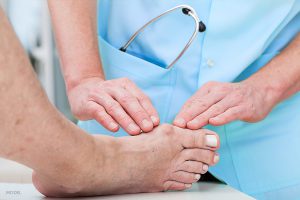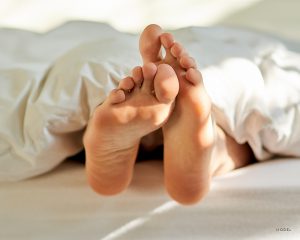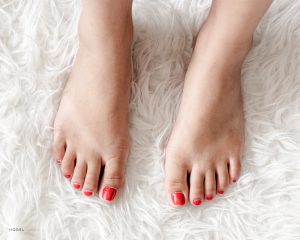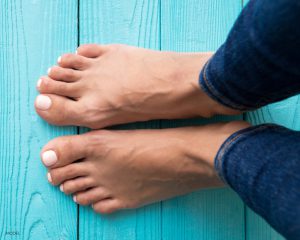Medically Reviewed by Dr. Rachel N. Verville
March 4, 2020
 Every year, board-certified podiatrist Dr. Verville of RNV Podiatry helps hundreds of Frisco patients with bunion treatment. This foot condition is most often the result of an inherited foot condition, but other causes of bunions include consistently wearing tight shoes that put stress on the toes, medical conditions such as arthritis, and foot injuries that put stress on the front of the foot.
Every year, board-certified podiatrist Dr. Verville of RNV Podiatry helps hundreds of Frisco patients with bunion treatment. This foot condition is most often the result of an inherited foot condition, but other causes of bunions include consistently wearing tight shoes that put stress on the toes, medical conditions such as arthritis, and foot injuries that put stress on the front of the foot.
Bunions develop when the big toe leans in toward the second toe, resulting in an enlarged and inflamed big toe joint. Professional bunion treatment is almost always required in order for patients to find true, long-lasting relief.
But did you know that Frisco patients who are at an increased risk for bunions are able to prevent them from ever occurring? Keep reading as we talk more about ways you can prevent bunions and avoid bunion treatment.
How to Prevent Bunions
If you know your mother or father required bunion treatment, or that you have a foot shape that is prone to developing bunions, it’s vital that you take measures to prevent them from occurring in the first place.
You can avoid bunions by wearing shoes that support your feet well, and by including orthotics to correctly position your feet. This means that your good shoe choices need to begin early on in life so you can have the best chance at avoiding this painful foot condition.
Other than good shoes, there are some things you can do to prevent your need for bunion treatment:
- Always wear comfortable shoes that give all of your toes enough room
- Have your shoe size measured by a Frisco shoe professional to determine the correct size
- Buy shoes with a wide toe box that provides room for your toes to have some separation
- Exercise your feet and strengthen your toes by trying to pick up small objects with them
- Keep an eye on your foot shape as you age, especially if bunions run in your family
Remember, seek bunion treatment at the first sign of formation to ensure they don’t worsen.
Signs and Symptoms of Bunions
Men and women in Frisco will know they have a bunion when they experience pain, soreness, inflammation, and redness in and around the front of the foot. Additionally, if you experience any of the following, you may require bunion treatment:
- A large bump or bulge on the outside of your big toe
- Swelling and redness on the joint of your big toe
- Thickened skin on the base of your big toe or front of your foot
- Restricted movement of your big toe
- Pain when you walk
- Persistent pain in and around your big toe, even when resting
If you or a loved one are experiencing any of the symptoms, be sure to call Dr. Verville soon to book a consultation. When you visit with her, she will thoroughly examine your foot, take x-rays, talk to you about your pain and discomfort, and answer any questions you have regarding your condition. She will then get to work developing a treatment plan to help you get back to your active lifestyle.
Learn More About Preventing Bunions by Calling Dr. Verville
If you live in the Frisco area and what to avoid bunions and bunion treatment, the best thing you can do is call Dr. Verville of RNV Podiatry. She can answer any questions you have about the prevention and treatment of bunions and schedule an initial consultation for a full examination. Simply call her office at (214) 385-8822 today to learn more!



